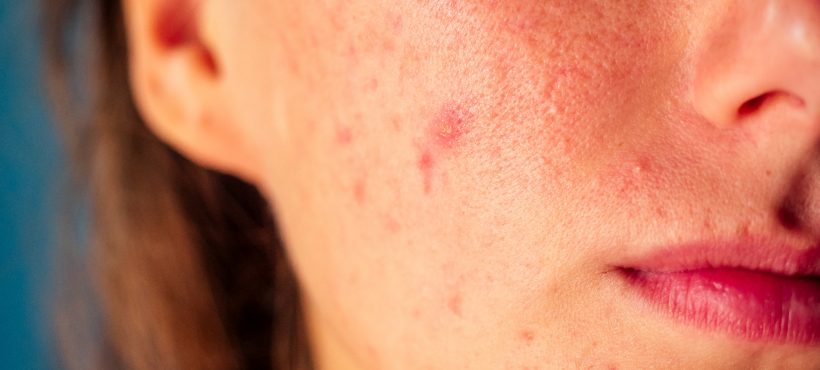
Find Out Why You’re Breaking Out! 7 Causes of Cystic Acne in Adults
Each year, a whopping 50 million Americans are living with acne; it’s not just teens, either. Up to 15% of adult women suffer from acne.
The most serious type of acne is called cystic acne. These large pus-filled cysts live deep in the skin and are tender to the touch. They can form on the face, neck, chest, back, and arms and can cause scarring if popped.
Cysts are notoriously difficult to treat because topical treatments don’t work. The key to getting outbreaks under control is to first understand what causes cystic acne in adults.
Read on to learn the 7 leading cystic acne causes in adults.
1. Hormone Levels
Acne is often tied to fluctuations in hormones. This is both true of teens who get hormones during puberty as well as adults who suffer from acne.
Fluctuations in estrogen and progesterone are common causes of acne in adult females. These hormonal fluctuations can happen for a variety of reasons including pregnancy, menopause, and menstruation.
Also, starting, stopping, or changing types of birth control can cause acne in women. Even months later, acne outbreaks can occur due to these changes.
However, not only women can experience hormonal acne. Androgens such as testosterone in men can increase sebum production in the skin. An increase in oil production means an increase in acne.
2. Medications
Acne is a potential side effect for a variety of medications. If you’re taking any prescription drugs check the leaflet to see if acne is one of the side effects; you can also talk to your pharmacist if you aren’t sure.
Medications such as steroid inhalers, testosterone, and birth control are just a few of the types of medications that can cause acne.
If you suspect that a medication is causing your acne, speak to your doctor. There is a possibility that another prescription medication can offer the same benefit without the side effect of acne.
If you can’t change your medication, there are still options to control your acne. We cover many of these options below.
3. Stress
Research shows a correlation between acne and stress. When we’re under chronic stress, the acne-causing hormones get stimulated.
When people feel stressed or anxious, the adrenal glands begin to produce extra amounts of cortisol; this can cause an imbalance in the skin.
Emotional stress can wreak havoc on many aspects of your body and health, including acne flares. Stress also leaves you more prone to various serious health conditions such as weight gain, high blood pressure, anxiety, and depression.
The best thing you can do for every aspect of your health is to get your stress under control.
4. Certain Skin and Hair Products
You may (or may not) be surprised to learn that the products you use on your head and face could be contributing to your acne problem!
Some products stimulate oil production and clog pores, both of which cause acne. Fortunately, this is one of the easiest causes of cystic acne to cure.
Start by examining your face wash, moisturizer, sunblock, and hair products. Look for words such as “oil-free” or “non-comedogenic.”
Also, be careful about how frequently and vigorously you wash your face. Over cleansing can actually make acne worse. Vigorously scrubbing or drying your face can aggravate the skin and make acne worse.
People with sensitive or dry skin should only be cleaning their face once a day.
Remember that if your face wash strips all the oils from your face, your body sends signals to your skin to produce even more oil to overcompensate for the loss.
Choose a gentle cleanser and toner for your skincare routine. Wash in gentle circles, and lightly pat dry.
5. The Outdoors
The outside environment can have a profound impact on the health of your skin. Especially the dirt and UV radiation you’re exposed to while outdoors.
Air pollution adds a layer of junk to your face. If you don’t wash it off, that dirt and grime can increase the likelihood of clogged pores.
Similarly, UV rays dry out the skin. As a result, the skin tries to compensate by creating excess oil that can lead to acne. The solution here is simple: have a daily cleansing routine and always put on a broad-spectrum sunscreen of at least SPF 30 each day.
Not only will sunscreen protect you from dried-out skin, but it will also prevent sun spots and skin cancer.
6. Genetics
Research shows that your family history impacts your likelihood to develop acne. If your parent or sibling had adult acne, you’re more likely to develop it as well.
Your genes impact the size and visibility of your pores. Those that inherit large and visible pores from their parents are more prone to acne.
Genetics also plays a part in how well your immune system is at warding off Propionibacterium acnes; these bacteria promote acne.
Though there’s not much we can do about genetics, it is possible to give your skin the best defense possible. The right acne products and skincare regimen can minimize the effects of cystic acne.
7. An Undiagnosed Medical Condition
Though less likely, some people experience cystic acne due to an undiagnosed medical condition.
If you’re experiencing unexplained acne after trying the recommendation on this article, consult your doctor. Blood tests can show if there is a medical cause of your acne.
Cystic Acne Is Not the End of the World
We hope these common causes of cystic acne help you identify the reason for your breakouts.
Once done, shop our selection of specialty acne products to help you get the clear skin you’ve been dreaming of.


